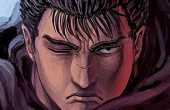alexpasquale
Freelance undergrad Creative Writing major at Cornerstone University.
Contributor I
- Plebian Penman
- Lurker
- Pssst
- Sharp-Eyed Citizen
- ?
- Articles
3 - Featured
2 - Comments
31
- Ext. Comments
17 - Processed
13 - Revisions
8
- Topics
4 - Topics Taken
1 - Notes
4
- Topics Proc.
6 - Topics Rev.
2
- Points
655 - Rank
188 - Score
354
Latest Articles
Latest Topics
Published | What does the end of Annihilation (2018) mean?The movie Annihilation (2018) has a pretty confusing ending with lots of interpretations. What happened to Lena? What was the significance of the mirroring alien? How does the ending tie in to the themes seen throughout the rest of the movie? Who is the Kane we see at the end of the movie? |
Dr. Strange, Spider-Man, and the MultiverseDr. Strange and the Multiverse of Madness and Spider-Man: No Way Home deal with the multiverse in various ways. Multiverse stories can be interesting and also complicated. How did these movies handle this complicated plot? Was it done well or could it have been done better? It might also be good to compare it to other stories with a multiverse plot (ex. Everything Everywhere All at Once, Bioshock: Infinite, Dark Matter by Blake Crouch, or Spider-Man: Into the Spiderverse if you want an all Marvel article). Explore the pros and cons of a multiverse plot and how these stories fit into it. (My Opinion): I believe that Dr. Strange and Spider-Man used the multiverse mainly for nostalgia, to varying degrees of success, and the stories ignore the other strengths of the plot (especially Multiverse of Madness). I think these stories are flawed but enjoyable. Feel free to disagree with me, agree with me, or bring up more talking points!
|
The Iterations of Tony Stark and Ultimate ComicsThe MCU has taken a lot of it's inspiration specifically from the Ultimate line of comics. Thor's Stormbreaker, Spider-Man being in high school again, and Tony Stark's personality. Tony Stark has always been snarky, witty, and a pretty swollen ego, but a lot of the mainline comics' Tony Stark's rough edges have been sanded down. Stark was one of the founding members of the Illuminati, working for Kang the Conqueror, shooting Hulk into space, lots of his actions in both Civil War storylines, and not to mention his stint as Superior Iron Man, exploiting people and lots of other dubious actions. My question is, have we lost something? Are the rough edges what make Iron Man so compelling in the comics? Has the MCU's more palatable Iron Man worse or just different? What about other comic characters who've lost nuance like Wolverine in every movie besides Logan? Further, how do we go about adapting these characters from these thousands of issues to hours of film? Is it even possible? Is the loss of some nuance a necessary evil?
|
The Last of Us vs. Resident Evil; TV Video Game AdaptationsWithin the last two years we have received two horror video game inspired TV adaptations, one that was a smash hit, and one that flew under the radar. Neither of these shows stuck 100% to the source material so what made The Last of Us succeed and Resident Evil fail?
|
Pending | Differences in tone between Marvel and DC comicsMarvel and DC comics have been said to have distinct tones between them with Marvel being about more grounded protagonists and DC being about more god-like entities. Is there a difference? Which characters are the exceptions?
|
Pending | Lord of the Rings and it's homage to MacbethIn Lord of the Rings there are two satisfying moments that seem to derive from Macbeth's prophecies. That no man of woman born can slay Macbeth and that the Birnam wood would come to Dunsinane. In Macbeth these prophecies were gotten around in a less direct way of a C-section in the first case and cutting down branches and using it as cover in the second. Lord of the Rings uses alternative outcomes with trees literally marching on Isengard and a woman killing the one that cannot be killed by man. Analyze and critique these differences in the two classics
|
Pending | If the ending of an anime is different from the manga, is it a bad adaptation?This question can go for books/movies, comics or really any adaptation. What does a director adapting a piece of media have to prioritize? If this director sees the ending of a work and decides to change the ending to fit his own view, has the adaptation suffered because of it? Imagine a scenario where the ending is, on an objective level, neither better, nor worse than the original ending. Is the new ending a poor adaptation on the sole basis of its deviation from the source material? Or conversely, can the original intent of the author be bent to serve a new story?
|
Latest Comments
| Analog Horror: Analyzing an Eerily Nostalgic Genre | |
Depends! Some are more on the digital horror side which draws more from recent nostalgia, but Kane Pixel’s The Backroom series definitely falls more into the analogue horror camp. | Analog Horror: Analyzing an Eerily Nostalgic Genre |
Yeah this is a valid complaint. I think Local 58 did it best. | Analog Horror: Analyzing an Eerily Nostalgic Genre |
I didn’t know this! Love the series, definitely on of my favorites. | Analog Horror: Analyzing an Eerily Nostalgic Genre |
I think this movie is called “Cam”. Spooky watch! | Analog Horror: Analyzing an Eerily Nostalgic Genre |
Great article! Loved the read. | “The Replacements” a Marxist Reading of Anti-union Propaganda |
Great writing! This article really grew into something wonderful. I love the conclusion and how you tied it all together. The first open world game I fell in love with was probably Assassins Creed: Black Flag. While most of its open world is literally just water, the sailors singing, the sound of the waves, and the wind, and the slow crescendo to ship to ship combat kept me endlessly engaged. For some reason Skyrim never had a hold on me like it did many others. Fallout: New Vegas is another open world game that has kept me coming back. | The Compulsive Indulgence of Open-World Games |
That is an interesting point. I do feel that social media can create a barrier between our ideal selves and our real selves, a persona we create and perpetuate through these apps. Connecting back with ourselves, fusing the identities we have built into something more true and honest. Connecting with what is real in our world is also something I completely agree with. Pictures and captions don’t do justice to real experiences we can have over the course of our lives. Social media drives a wedge between us and everything beyond the screen, even ourselves. Very insightful, Allan 🙂 | Exploring the impact of social medias through Helter Skelter and Black Mirror's Nosedive |



All amazing recommendations! The monument mythos is a series I still have to finish so thanks for the reminder haha.